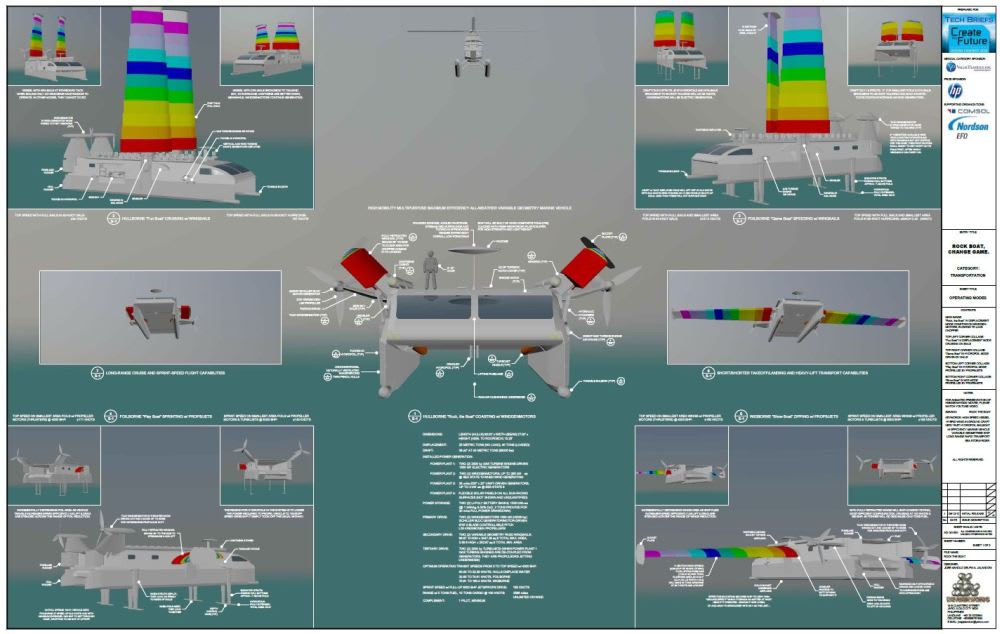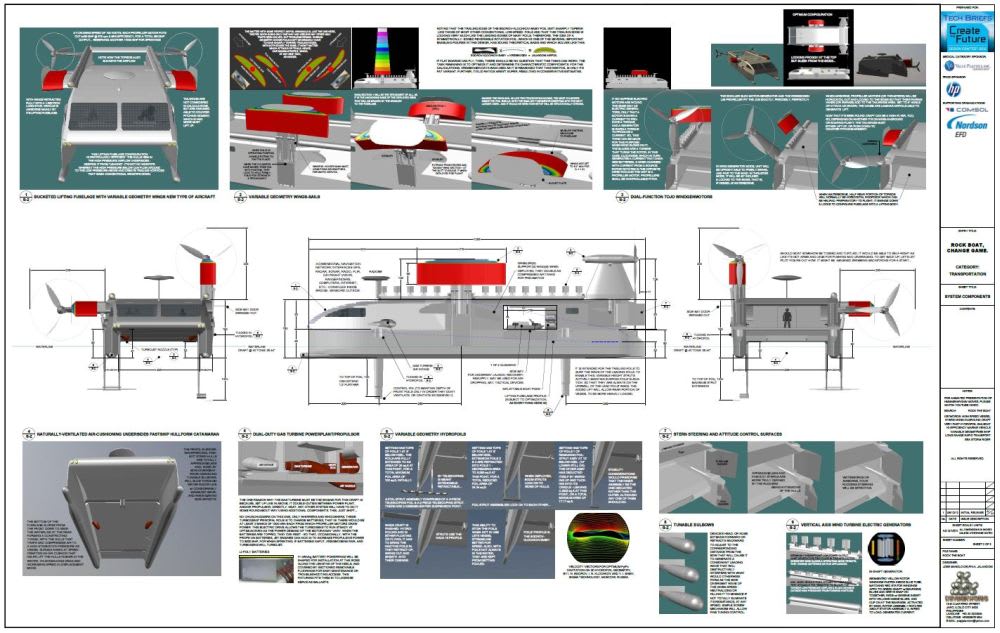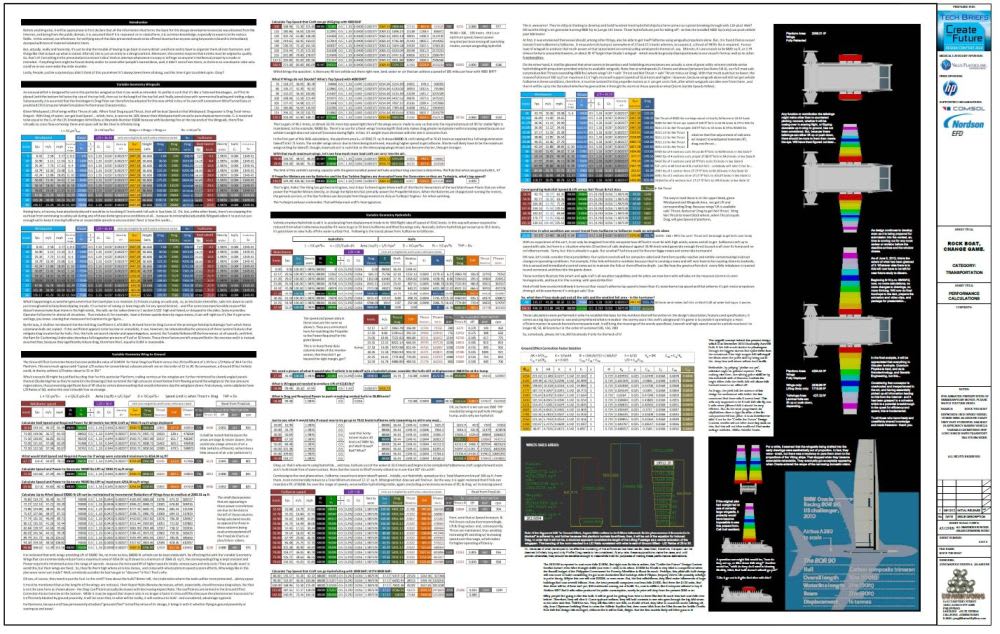Craft shall go faster, farther and carry more than any before on the same weight and power, and will do so as boat, sailboat, hydrofoil-boat, hydrofoil-sailboat, WIG or airplane. Technologies, components, and companies that can build it, exist. It will be made for purposes of business, pleasure and/or otherwise.
88-footer by 28-feet-beam catamaran, 40tons loaded with 3000kW electric drive installed, cruises at 100knots and goes 3600miles on 5tons fuel at less than 1000BHP, sprints to 195knots on 8000BHP, and clocks Mach0.45 with sails!
Incredible? With Variable Geometry is how.
1 pair variable-geometry sails can be made to deploy any required area between maximum 2447.4ft2 and minimum 262.7ft2 at AOA versus any wind direction to produce corresponding thrust and speed, be boat hullborne, or foilborne;
4 pairs variable-geometry struts/hydrofoils can be made to deploy any required area between maximum 100ft2 and minimum 17.17ft2 to lift hulls off water surface and bear vessel to corresponding speed and height on available power;
1 pair variable-geometry wings can spread to maximum planform area 4254.04ft2 for shorter-run takeoffs, and incrementally reduce with increasing speed until its smallest retraction 2069.31ft2 - to cruise at highest efficiency and longest range, or sprint to the limit of capacity;
2 sets specially-setup 2000BHP gas turbine engines can either drive 1500kW generators, or outright be turbojet propulsors themselves simply by gearbox-shifting;
2 units unique ToJo Wingenmotors, each using 2000hp Schiller BLDC motor-generators and Ø16’ L55 Kreisbogen propellers, either function as thrusters, or wind generators...
Constructed of superior strength-to-weight ratio advanced composites, vessel will be lightweight, unsinkable, shallow- draft;
Primarily a boat, unconventional, widely-separated, non-interfering, wavepiercing, pencil-slender, appendageless, fine-exit stern Twin Hulls make craft stable and swiftly cutting through water like razors. Tunable Bulbows having noses adjusting forward or backward consonant with boat speed create second bow waves that destructively interfere with the bow-divergent waves - canceling them out, and their resistance. The fuselage bottom slopes from the front gradually down to near the waterline at the rear forming a constricting tunnel with the hulls, trapping and compressing air to a high stagnation pressure cushion that helps raise the vessel in the water as it surges ahead at speed. These make boat fast.
The longitudinal cross-section of the fuselage is such that it can configure into the profile of an airfoil, enabling it to transform into a lifting body;
2 independent Wingrig Systems comprising of hydraulic and pneumatic actuators, servo mechanisms and controls, plus fastening, bracing and supporting accessories – deploy, position, orient, adjust, and lock wings-sails to required operating configurations.
26 seemingly insignificant low-power VAWT generators lend atypical meaning to “efficiency” by performing invaluable function when stowed during flight – they bucket the topside airflow.
3 tons 3000kWh Li-Poly Batteries reserve power and run Thruster Motors. The power packs, shaped for installation alongside the keels, double-serve as ballasts.
Assumptions:
Hulls: Ct = 0.004
Sails: CL = 1.33, CD = 0.0368
Wings: CL = 1.33, CD = 0.04374
Hydrofoils: L/D = 18, CL = 0.292
Video
Like this entry?
-
About the Entrant
- Name:Jose Manolo Delfin Jalandoni
- Type of entry:individual
- Software used for this entry:AutoCAD, 3DSmax, PropCalc, Aximer
- Patent status:none








